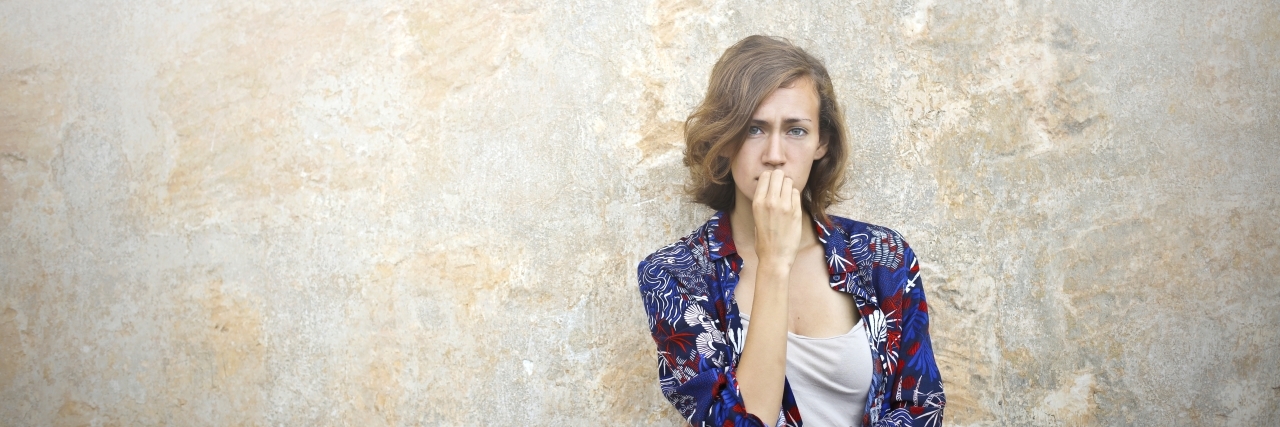When Receiving the Proper Borderline Personality Disorder Diagnosis Takes a Long Time
I was diagnosed with borderline personality disorder (BPD) in December 2016, at the age of 36. The diagnosis was bittersweet. I was happy to finally have someone recognize I have BPD, but if it wasn’t for my doctor I might have had help earlier, and maybe I’d be further along in my recovery.
I can’t remember exactly when I first thought I might have BPD, but I had found out about it online and identified with it. I forgot about it for a while but in the latter half of 2015 I became convinced that I had it. The trouble was, I couldn’t convince anyone else. I went to see my doctor at the time and he dismissed everything I said. I had started to see a counselor, and with every symptom I mentioned to my doctor, he would say “counseling will help with that.” At the end my doctor said, “You haven’t told me anything that sounds like a personality disorder.” He insisted on increasing my dosage of antidepressants and refused to refer me to anyone. In the meantime, I was having similar conversations with my counselor, and she just told me she wasn’t qualified to diagnose.
Soon after this I realized I had obsessive compulsive disorder (OCD), and when I went and told my doctor my symptoms he immediately agreed with me and referred me to the mental health team for assessment. Over the next few months my OCD took over and I became obsessed with that, basically forgetting about anything else. When I went for my appointment with the mental health team I was diagnosed with OCD and was led to believe that my OCD had tricked me into believing I had BPD. I didn’t really talk about any other symptoms because I was so focused on the OCD.
I had made a close friend around this time who became my “favorite person” (FP) —I didn’t know what that was at the time. I knew I had symptoms perhaps unrelated to OCD, mostly wanting to be ill and thinking no one cared about me, and a lot of self-hatred. But I didn’t think too much about what that all meant, until my friendship started to become too much for my FP and she left temporarily. I was so upset about it all that I did things to hurt myself because I thought that would bring her back. After that period I came to realize I had abandonment fears that I hadn’t realized existed before. I started to think about BPD again and went to my therapist with my concerns. Coincidentally, she specializes in personality disorders and told me she had her suspicions before that I might have BPD. She did a questionnaire on me and then diagnosed me with BPD. I met seven of the nine criteria in some form.
Getting a diagnosis felt a bit weird. I was annoyed that the doctor hadn’t believed me earlier. When I thought about it, it seemed obvious that I had many of the symptoms. I’d self-harmed on and off since I was a child, progressing from banging my head against the wall to cutting myself. I couldn’t bear to be single, when a relationship ended I was thrown into despair and had to find another one immediately. One previous partner left me because of my “moods,” and another one because she went on holiday for two weeks and I cried and thought she would forget about me. I guess I felt abandoned. My ex-FP once didn’t reply to a text message for hours because she was at a friends house and I was terrified she had died and got myself worked up. I had a problem with people not responding to texts in general, and had deleted people’s numbers from my phone when they didn’t reply. I had a hard time believing people cared about me and I always thought I was going to be abandoned. If someone else got sympathy I thought it meant they cared about them more and I would sometimes do things to get their attention back. But I also had times where I couldn’t be around people, I found it too much and I wanted to be alone.
I guess I grieve for the life I could have had. I was really miserable for most of my 20s and had seen various doctors and mental health professionals and no one realized I had BPD. I wonder what my life would be like now if I received therapy earlier. Maybe I could have had a more “normal” friendship with my ex-FP and we could still be friends now. Maybe I’d be further along in my career. Perhaps my relationships would be more stable. But there’s no point in living with regrets.
Since my diagnosis I have found more and more similarities with other people who struggle with BPD that show me the diagnosis was the correct one. The road to recovery is a long one, but at least I am now on the right path.
If you or someone you know needs help, visit our suicide prevention resources page.
If you struggle with self-harm and you need support right now, call the crisis hotline at 1-800-273-8255 or text “START” to 741741. For a list of ways to cope with self-harm urges, click here.
We want to hear your story. Become a Mighty contributor here.
Getty Image via Marisa9

